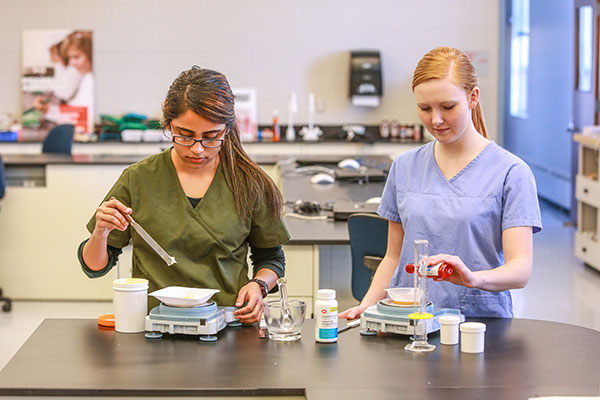As the healthcare industry in the United States continues to expand, the role of pharmacist assistants has become increasingly important. These professionals are essential to the day-to-day operations of pharmacies, supporting licensed pharmacists and ensuring that patients receive safe and timely care. Enrolling in a pharmacist assistant course provides a practical, accessible way to enter the healthcare field and build a rewarding career.

The Essential Role of a Pharmacist Assistant
Pharmacist assistants perform a variety of tasks that contribute to the smooth functioning of pharmacies. Their responsibilities often include preparing and labeling prescriptions, maintaining patient records, handling inventory management, processing insurance claims, and assisting customers with questions about over-the-counter medications. By taking care of administrative and preparatory work, pharmacist assistants allow licensed pharmacists to focus more on clinical care and patient counseling. This support is crucial in busy pharmacy settings such as hospitals, retail stores, and long-term care facilities, where attention to detail and efficiency can directly impact patient outcomes.
Core Topics Covered in a Pharmacist Assistant Course
A comprehensive pharmacist assistant course in the U.S. typically covers a broad range of essential topics. Students are introduced to pharmacy terminology, drug classifications, dosage forms, prescription interpretation, and basic pharmacology. Legal and ethical aspects of pharmacy practice are also taught, ensuring that students understand the importance of confidentiality and patient safety. Additionally, courses often include training on pharmacy management systems, inventory control, and insurance billing processes. Hands-on components such as laboratory work or externships allow students to practice their skills in real-world environments, better preparing them for the demands of the job.
Length of the Program and Certification Opportunities
Most pharmacist assistant programs can be completed in as little as six months to one year, depending on the format and the student’s availability. After completing the program, many graduates choose to pursue certification, such as the Pharmacy Technician Certification Exam (PTCE) or the Exam for the Certification of Pharmacy Technicians (ExCPT). Certification is not mandatory in every state, but it often increases job opportunities, salary potential, and career growth. Some states also require registration or licensing, so students should check specific state requirements before beginning a course.
Career Prospects and Advancement Opportunities
The demand for pharmacist assistants and pharmacy technicians is expected to grow steadily in the coming years, driven by an aging population and increased demand for prescription medications. According to the U.S. Bureau of Labor Statistics, employment for pharmacy technicians is projected to grow by about 5% over the next decade. Pharmacist assistants can find opportunities in retail pharmacies, hospitals, outpatient clinics, and mail-order pharmacies. With additional experience and education, many assistants transition into roles such as lead pharmacy technician, pharmacy manager, or even pursue degrees to become licensed pharmacists. The career pathway offers flexibility, growth potential, and long-term job security.
Choosing the Right Pharmacist Assistant Program
When selecting a pharmacist assistant course, prospective students should prioritize programs accredited by recognized organizations like the American Society of Health-System Pharmacists (ASHP). Accreditation ensures that the program meets industry standards and properly prepares students for certification and employment. It’s also important to consider factors such as the curriculum depth, access to externship opportunities, flexibility for part-time study, and support services like career counseling. Some programs even offer online or hybrid options, making it easier for working adults to pursue training without sacrificing their current responsibilities.
The Rewards of Working as a Pharmacist Assistant
A career as a pharmacist assistant offers more than just a paycheck; it provides the satisfaction of helping people maintain their health and well-being. Every day, pharmacist assistants contribute to patient safety, improve healthcare outcomes, and support a vital part of the medical community. The role is ideal for individuals who are detail-oriented, enjoy working with people, and seek meaningful, stable employment within the healthcare sector. It also serves as a valuable stepping stone for those who aspire to advance further in healthcare careers.
Conclusion: Take the First Step Toward a Bright Future
Enrolling in a pharmacist assistant course in the U.S. is an excellent first step for individuals who are passionate about healthcare and eager to start a professional journey. With comprehensive training, certification opportunities, and a strong job outlook, pharmacist assistants are well-positioned for success. By investing in the right education and skill development, you can build a career that offers both personal fulfillment and professional growth in a thriving industry.
